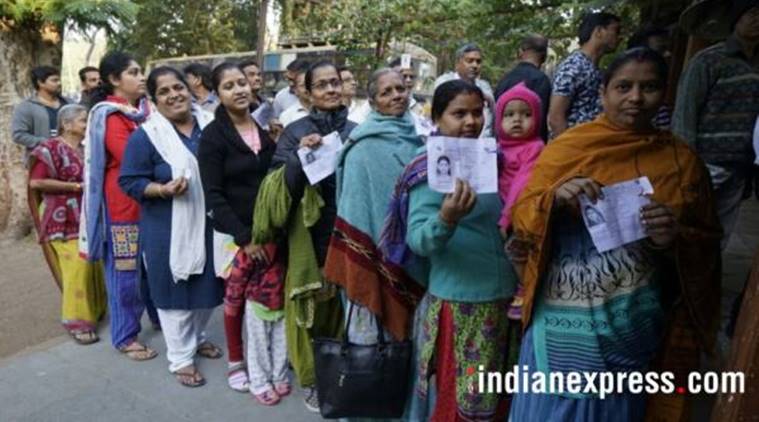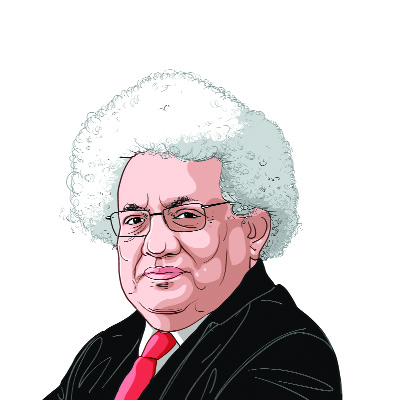Opinion Out of my mind: Gujarat could be a watershed
If the Congress makes a dent in the BJP’s majority tomorrow, the Hindutva lite approach will become the new Congress ideology. It does not have to be much.
 The counting for the bypoll will be held on July 10, with July 9 reserved for any repeat polls, if necessary.
The counting for the bypoll will be held on July 10, with July 9 reserved for any repeat polls, if necessary.  People waiting in queue to vote in second phase of Gujarat assembly polls.
People waiting in queue to vote in second phase of Gujarat assembly polls.
No, I cannot tell you who is going to win the Gujarat elections tomorrow. The point is not the result but the contest. It has been a closely fought battle. The Gujarat election campaign has charted a new way of fighting elections. In previous elections, passions have seldom risen so high. In Delhi, the surprise was the result, not the campaign. When Bihar results came, with the BJP losing to the Mahagathbandhan, there was again the same feeling of surprise, but the campaign was pretty standard. The same caste equations were deployed and the theme was secularist tolerance versus Hindutva. The Uttar Pradesh elections involved a repeat of the Bihar themes by the Samajwadi Party-Congress coalition but with bad results.
Gujarat broke the mould. The Congress changed its tactics fundamentally. It abandoned the secular/tolerance theme. It fought on the BJP’s homeground of Hindutva. For the first time in Indian elections, at the Central or the state levels, Muslims were written out of the equation. For the Congress, this is a massive shift, but it makes perfect sense to copy the successful brand. Its old brand lost out both in 2014 and then in UP.
The Congress has not yet developed its distinct alternative to Hindutva. It has been anxious in Gujarat to shed the widespread impression that in being secular, it is anti-Hindu. The message has been in Rahul Gandhi’s campaign. His visits to temples were no accident. Even after the muddle over what happened at Somnath, RaGa has continued to go to temples and even put on Rudraksh mala.
If the Congress makes a dent in the BJP’s majority tomorrow, the Hindutva lite approach will become the new Congress ideology. It does not have to be much. But as long as the BJP loses even a small number of seats to the Congress, the party will have found a new way to fight. Whichever way the Congress develops its majoritarian ideology, it will mark a watershed in Indian politics. For the first time since 1952, the Congress will openly and consciously fight for the Hindu vote.
How has this happened? And why now? The simple answer is Mandal. The report was a revolutionary analysis of social and economic deprivation. Until then, problems of poverty were analysed in terms of economics. Economic models are blind to religion or caste. Mandal decided to concentrate on the majority community. The tools of social anthropology were used, where castes and jatis were the staple material. Mandal said the best indicator, if not cause, of deprivation was the ritual jati status.
Once V P Singh adopted Mandal, vote banks began to be based on jatis. Regional parties could exploit the granularity of jati divisions. The national parties were shy of stooping to that level. The Congress had its commitment to secularism i.e. minorities. The BJP wanted to overcome divisions within the Hindu majority and played on Hindu nationalism.
The Congress delayed its response to Mandal due to its accidental win in 2004. Despite the BJP’s economic success with India Shining, the Congress could still win on its old ideology. It continued the BJP’s economic policy and won in 2009. But 2014 was an awakening. Despite Bihar, UP confirmed the bankruptcy of the old Congress model. Unless the Congress gets annihilated in Gujarat, Indian politics will be about competing varieties of Hindutva.





